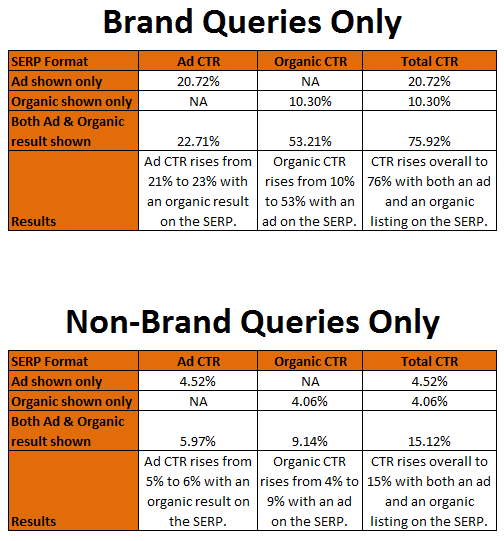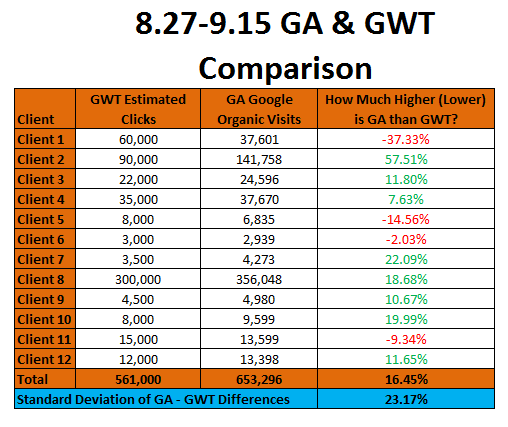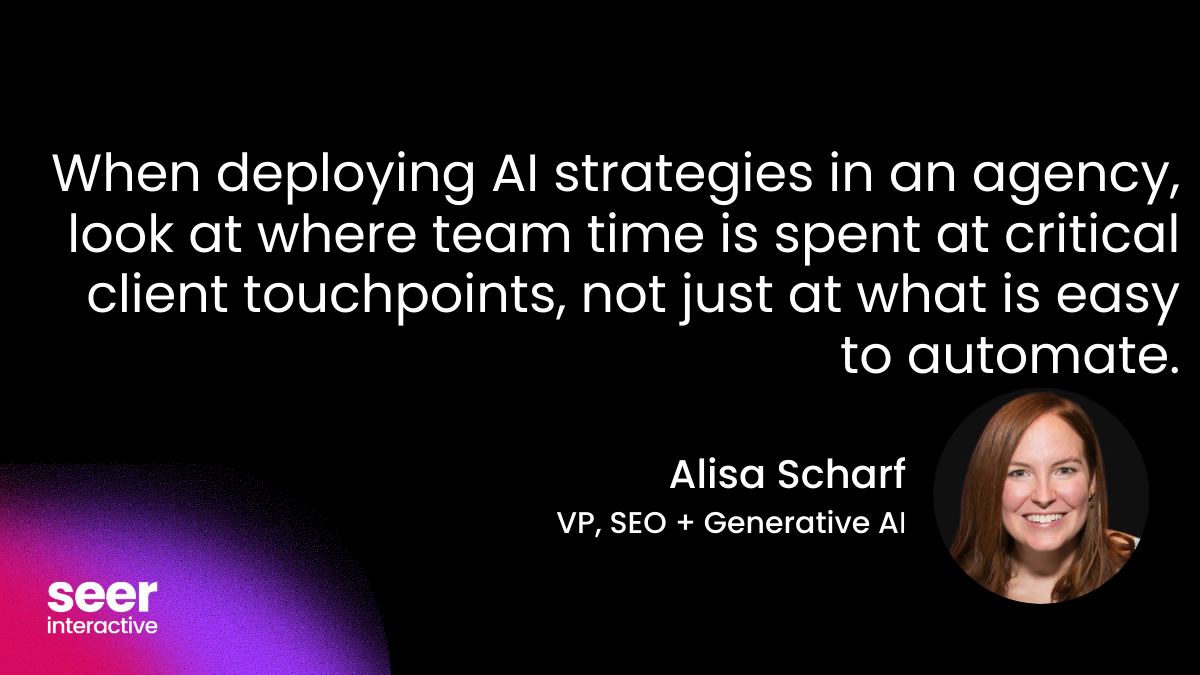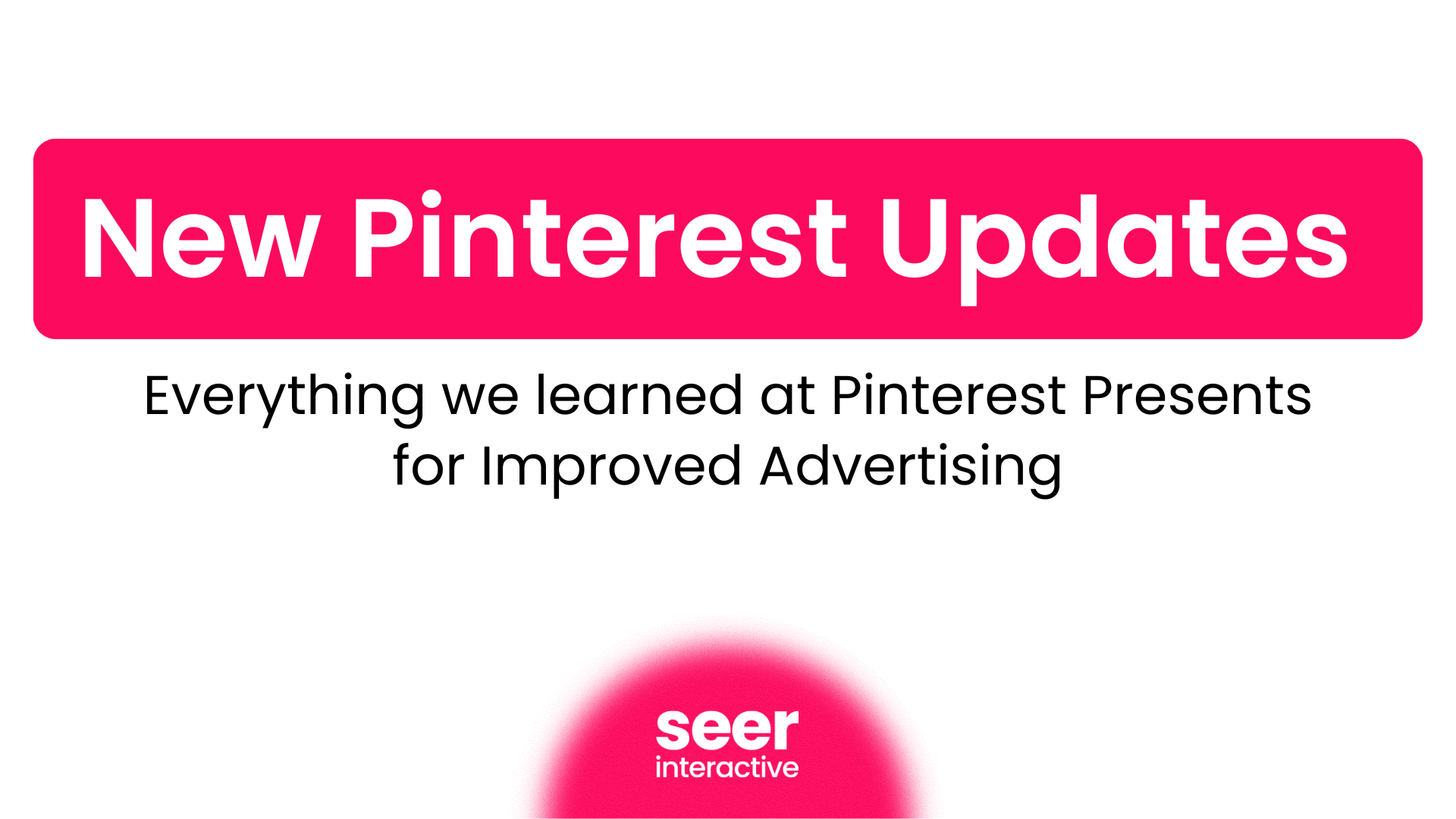Many good things come in four. My favorite four things that come in fours may be the weather seasons, the NCAA Final Four, FDR's Four Freedoms and the A-Team.

Source - http://www.universalstudiosentertainment.com/assets_c/2010/05/Ateam_1-thumb-497xauto-890.jpg
Last week, I wrote about initial AdWords paid and organic report data. The paid and organic report links Google Webmaster tool data with AdWords data to show how PPC and SEO interact on a click through basis. We had four main questions to answer.
1. How does brand and non-brand search query behavior vary?
CTR increases for ads and organic listings, both brand and non-brand queries, when both an ad and an organic listing are on the SERP's. This data is for SEER clients across industries, from 8.27-9.15.

The highlights …
- SEO CTR rises by 416% (for brand) and by 125% (for non-brand) when a PPC ad is also on the SERP's.
- There is no PPC "cannibalization" of traffic for high ranking organic terms, brand or non-brand.
- Non-brand still benefits (CTR more than doubles) by adding an ad to the SERP. This may change the ROI calculation and decision about whether to bid on expensive non-brand terms for PPC, if the client ranks highly organically for those terms.
- PPC CTR rises, though by less (by 10% to 32%), when a PPC ad is paired with an SEO result.
- People don't 'skip the ads' to click on high SEO rankings. WordStream has a good infographic dispelling the myth that people always click on the free links (see here) as do the bank statements of SEER PPC'ers on payday, but here is some more data proving it.
2. Does paid and organic report data contain Google search partners?
No. As Aaron Levy first noticed, the reason why your campaign level data may be more than paid and organic report data is Google search partner activity. The paid and organic report is for google.com search only.
3. What happens to search queries with no clicks in paid and organic reports? Normally, in an AdWords only report, these would be included in "other search terms".
My colleague Ally Malick and I determined that PPC search queries with no clicks are still included if there is organic data from webmaster tools.

4. Can we trust Google webmaster tools query data (extensively lampooned) to track accurately?
GWT data is far from perfect, but it's good enough to get directional data. On the whole, our data shows that GWT has a tendency to UNDER-COUNT organic activity relative to Google Analytics. This means that the potential impact of SEO-PPC integration could be GREATER than what GWT data (and therefore, the AdWords Paid and Organic Report) indicates.
My colleague Emma Still and I double checked GWT definitions. Webmaster tool clicks aren't that exact ("numbers can be rounded, and may not be exact" – see here) but this has been problem for some time (nothing new). However, web analytics tools aren't perfect either. To list some of the common Google Analytics tracking issues.
- Not provided data skews Google Analytics organic data.
- People can use incognito mode browsers.
- Most Google Analytics profiles use filters that can skew results. For example, SEER Google Analytics profiles contain filters removing client IP addresses.
- The GA opt out plugin can be used by marketers (to avoid skewing data) and privacy enthusiasts.
While neither data set is perfect, I investigated whether GWT match Google Analytics data across a dozen SEER clients. I removed MANY clients who had too many profile filters, GWT tools tracking issues or other problems that would impact data quality. It's also key to note that a visit isn't a click, but this would make GWT even more understated as clicks are usually greater than visits. GWT clicks would be less if we could turned clicks them into visits (though this is not possible) or GA visits would increase if turned visits into clicks (though this isn't possible).

On average, there is a 16.45% difference between GA and GWT with a standard deviation of 23.17%. This means that GWT has a tendency to UNDER-COUNT organic activity relative to Google Analytics even before considering click-visit differences. This means that the potential impact of SEO-PPC integration could be GREATER than what GWT data indicates.
IMPLICATIONS
We considered the source and don't see red flags that would lead us to dismiss the data. SEO CTR more than doubles for non-brand terms when a PPC ad is also on the SERP. Might it make sense to run PPC ads at a loss because the incremental SEO traffic turns it into a positive ROI? This would be hard to track given secure search changes in the last year (not provided) but may be worth a test.
What do you think about the data in the new AdWords Paid & Organic Report? More of what we already knew? Is it useful? Is it not useful?
My 2 cents - I think the AdWords Paid and Organic report is another data point the daring can use to argue for enhanced SEO & PPC integration. No data is perfect and we must consider the source (of course Google wants companies to pursue integrated search strategies), but it does seem like there are synergies to capture through greater SEO and PPC integration.

